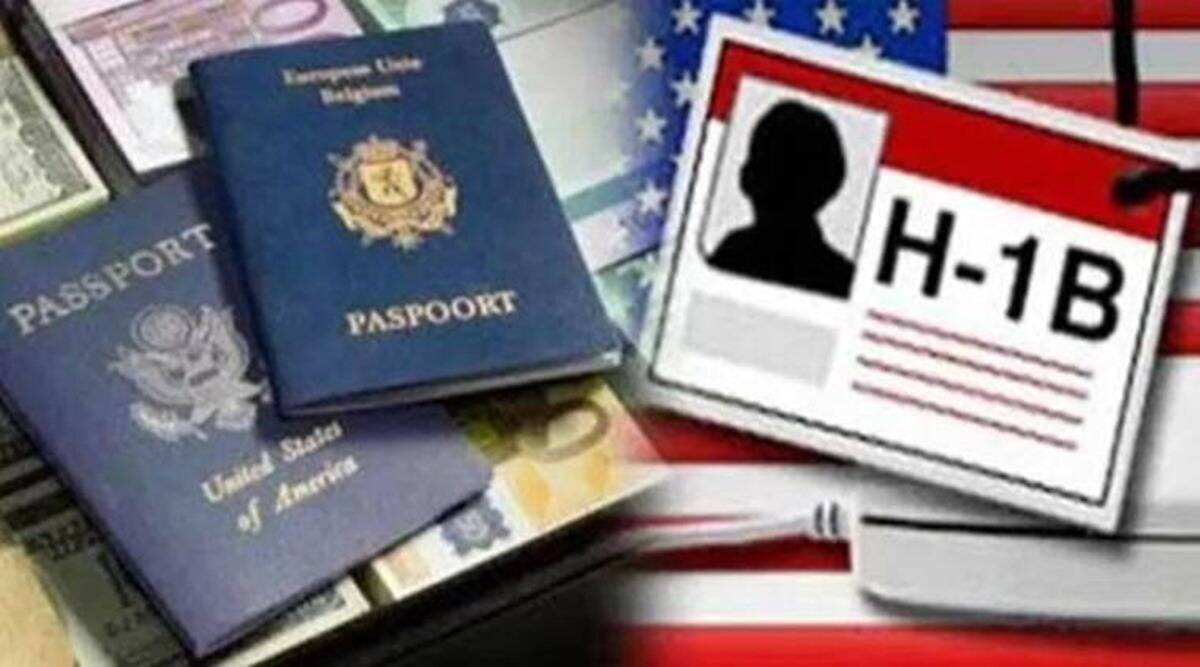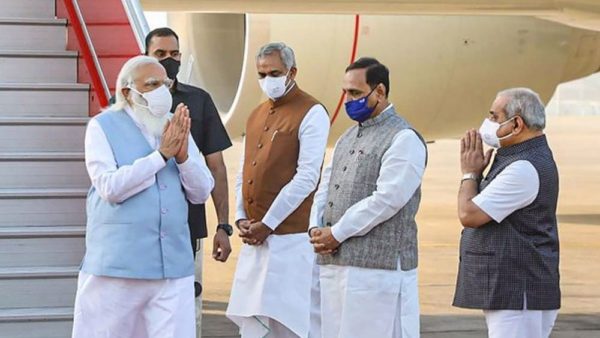Under the current U.S. immigration system, H-1B visas are temporary work visas that are typically issued to foreign workers with specialized skills who are sponsored by U.S. employers. H-1B visa holders can bring their spouses and children to the United States on H-4 visas, which are dependent visas. However, as of September 2021, H-4 visa holders are generally not eligible to work in the United States, unless their H-1B spouse has an approved immigrant petition or has been granted an extension beyond the normal six-year limit.
There have been discussions and proposals in the past to allow H-4 visa holders, particularly spouses of H-1B visa holders, to obtain work permits to be able to work legally in the United States. These proposals are usually subject to changes in immigration policies and regulations, and they are generally implemented through executive actions or changes in immigration law by the U.S. Congress.
It’s recommended to consult with a qualified immigration attorney or refer to the official websites of U.S. government agencies, such as the U.S. Department of Homeland Security (DHS) or the U.S. Citizenship and Immigration Services (USCIS), for the most up-to-date and accurate information on immigration policies and regulations related to H-1B visa holders and their spouses.
If work permits were granted to Indian spouses of H-1B visa holders in the United States, it could potentially offer several benefits, including:
Also Read: Microsoft gaming company to buy activision blizzard for rs 5 lakh crore
Increased employability:
With work permits, Indian spouses of H-1B visa holders would be able to seek employment in the United States, which could broaden their career opportunities and increase their chances of finding meaningful employment.
The recent decision by the United States government to grant work permits for Indian spouses of H-1B visa holders has brought a wave of relief for many. This move is expected to significantly increase employability among the Indian community in America. Since most H-1B visa holders have highly skilled jobs, it makes sense for their partners to also be given an opportunity to work and contribute towards the economy.
This decision is not only beneficial for Indian families but also for American businesses who will now have access to a larger pool of talented professionals. It will open up new avenues and opportunities for both sides, ultimately leading to economic growth and development.
Moreover, it will also help in reducing the financial burden on H-1B visa holders as they would no longer have to solely bear the cost of living in America. Instead, their partners could share this burden and contribute towards household expenses. Overall, this decision is a win-win situation for everyone involved, promoting inclusivity and diversity in the workplace while enhancing global talent mobility.
Also Read: Pubg developer krafton has filed a lawsuit against garena free fire
Enhanced financial independence:
Obtaining work permits would enable Indian spouses of H-1B visa holders to earn their own income, which could contribute to their financial independence and reduce their dependency on the primary H-1B visa holder’s income.
The recent decision by the American government to grant work permits for Indian spouses of H-1B visa holders has brought about a new era of enhanced financial independence. For years, the spouses of H-1B visa holders in America were unable to work and contribute to the household income. This often led to financial stress and dependence on a single income source.
However, with this new ruling, Indian spouses can now obtain their own employment authorization documents (EAD) and seek out job opportunities in their respective fields. This comes as a significant relief for many families who have been struggling financially due to restrictions on spousal employment.
Enhanced financial independence not only provides much-needed stability for families but also fosters personal growth and development. With more options available, spouses can pursue their career goals and aspirations while contributing to their household’s financial wellbeing. Overall, this ruling is a positive step towards creating more equitable opportunities for all individuals regardless of nationality or gender.
Improved quality of life:
The ability to work would allow Indian spouses of H-1B visa holders to have a better quality of life by gaining access to financial resources to support themselves and their families, such as healthcare, education, housing, and other essential needs.
The recent decision by the United States government to grant work permits for Indian spouses of H-1B visa holders has brought about a significant improvement in the quality of life for thousands of families. This move has been a long-standing demand from the Indian diaspora in the US, who have been advocating for greater employment opportunities for their spouses. With this new regulation, many Indian women who were previously unable to work due to visa restrictions will now be able to pursue their careers and contribute meaningfully to their families’ finances.
The decision has not only brought relief but also opened up new possibilities. For many families, dual incomes mean better standards of living, access to better healthcare facilities, and improved educational opportunities for their children. It is also an empowering step towards gender equality as it provides more women with career prospects and financial independence. The policy changes are expected to lead to increased productivity and economic growth in both countries.
In conclusion, the new regulation granting work permits for Indian spouses of H-1B visa holders is a significant step towards improving the quality of life for thousands of families. This change will provide more employment opportunities and financial stability while empowering women with greater career prospects and independence.
Also Read: Gujarat-vidyapeeth-by-mahatma-gandhi-in-1920-will-invite-governor-acharya-devvrat
Increased economic contribution:
The ability to work would allow Indian spouses of H-1B visa holders to actively participate in the U.S. labor market, contribute to the U.S. economy, and pay taxes, which could benefit the local economy and society as a whole.
The recent decision by the American government to grant work permits for Indian spouses of H-1B visa holders has been hailed as a significant step towards increasing economic contribution. The move is expected to provide a boost to the US economy, which will benefit from the increased spending power and tax contributions of these workers.
The H-1B visa program allows skilled foreign workers to come to the US and work in high-demand fields such as technology, engineering, and science. However, until recently, their spouses were not allowed to work in the country. This new policy will allow thousands of Indian women who are highly educated and skilled to work and contribute meaningfully to the economy.
Moreover, this move is also expected to have positive implications for gender equality. A large number of Indian women who accompany their husbands on these visas have advanced degrees but are unable to use them due to restrictions on employment. By removing this barrier, America has taken a step towards promoting equal opportunities for all.
Utilization of skills and talents:
Many spouses of H-1B visa holders are highly educated and skilled professionals. Work permits would enable them to utilize their skills and talents, which could be beneficial to the U.S. economy and society.
The new rule allowing the spouses of H-1B visa holders to work in America has opened up a plethora of opportunities for Indian immigrants. The move has enabled skilled and talented individuals, who had previously been restricted from working, to utilize their skills and contribute positively to society. This change has not only improved the financial status of numerous Indian families but also helped employers find qualified individuals.
Indian families are now able to lead a better life with both partners contributing financially. It is common for the spouse of an H-1B visa holder to have qualifications that can add value within the workforce, yet prior restrictions limited their ability to work. Now, these skilled individuals can put their talents into practice and be paid accordingly. By utilizing their skills, they are able to support themselves financially while contributing towards American society.
Moreover, this rule benefits employers too as it provides them access to a larger pool of talent from which they can source employees. These talented workers are often overlooked due to immigration restrictions despite being highly qualified in their field. Thus, by enabling such workers legally join the workforce encourages innovation and growth in different sectors of the economy – benefitting both employers and employees alike.
Enhanced career development:
Being able to work in the United States would provide Indian spouses of H-1B visa holders with opportunities for career development, including gaining U.S. work experience, networking, and professional growth.
The recent move by America to grant work permits for Indian spouses of H-1B visa holders has opened new avenues for enhanced career development. This policy enables the spouses to work and earn a living in the United States, which was previously not allowed. This is particularly beneficial for those who had to quit their jobs in India when their spouse got a job opportunity in the US.
The policy allows dual-income families, which means more disposable income that can be utilized towards career development, skill enhancement courses, certifications or even higher education. The added financial security also brings peace of mind and stability which further contributes to career growth.
Moreover, having a job and interacting with colleagues from different cultures can broaden one’s perspective and provide valuable insights into global markets and trends. It provides an opportunity for networking, building relationships with professionals from various backgrounds, learning about different work ethics or business practices that can help enhance one’s skills and knowledge base thereby boosting overall career development prospects.
Increased cultural diversity:
The ability of Indian spouses of H-1B visa holders to work in the United States would contribute to increased cultural diversity in the workplace, fostering a more inclusive and diverse work environment.
Increased cultural diversity is becoming more commonplace in the United States, particularly as the country becomes more globalized. A recent development in this trend has been America’s decision to grant work permits for Indian spouses of H-1B visa holders. These permits provide greater opportunities for qualified individuals and their families to contribute to American society, while also expanding the country’s cultural diversity.
This move comes at a time when many Americans are grappling with issues related to immigration and multiculturalism. By granting these work permits, the US government is signaling its commitment to embracing diversity and recognizing the valuable contributions that immigrants can make to American society. This decision also serves as an important reminder that immigration policy should be based on merit rather than nationality or other factors.
Overall, the decision to grant work permits for Indian spouses of H-1B visa holders represents a positive step towards creating a more inclusive and diverse America. As our world becomes increasingly interconnected, it is vital that we continue to embrace different cultures and perspectives in order to foster innovation, growth, and understanding within our communities.
The ability to work would facilitate the social integration of Indian spouses of H-1B visa holders into U.S. society, as it would provide them with opportunities to engage with local communities, build social networks, and establish meaningful connections.
Enhanced social integration is a crucial factor in the success of immigrants settling in a new country. The recent decision by America to grant work permits for Indian spouses of H-1B visa holders is an excellent step towards enhancing social integration for Indian immigrants. This move will enable spouses to become financially independent as they can now seek employment within the United States.
The inability to work has been one of the biggest challenges faced by immigrant spouses, leading to isolation and difficulties integrating into society. With this new policy, not only will it help them integrate better into American culture, but it will also provide opportunities for professional growth and development. Additionally, having a source of income will allow them to contribute economically to their household and communities.
Overall, enhanced social integration through policies such as granting work permits for immigrant spouses is not only beneficial for the individuals involved but also contributes positively to society at large. It promotes diversity, inclusion and economic growth while helping newcomers adjust more quickly and smoothly into their new home country.
Also Read: rajkotupdates.news:apple-iphone-exports-from-india-doubled-between-april-and-august
Improved mental well-being:
Being able to work and contribute to society can have a positive impact on the mental well-being of Indian spouses of H-1B visa holders, as it can provide them with a sense of purpose, fulfillment, and empowerment.
Improved mental well-being is an essential aspect of overall health, especially in today’s fast-paced world. The recent decision by America to grant work permits for Indian spouses of H-1B visa holders will have a significant impact on mental well-being. These new regulations will provide opportunities for Indian spouses who previously faced barriers to employment due to visa restrictions. In turn, this will enable them to pursue their careers and improve their financial stability, which can have positive effects on mental health.
Furthermore, the availability of work permits may also lead to greater social integration and engagement with local communities. This type of involvement has been shown to promote improved mental health outcomes by reducing feelings of isolation and loneliness. With greater access to employment and social networks, spouses are likely to experience higher levels of self-esteem and confidence which contribute positively towards better mental well-being.
In conclusion, granting work permits for Indian spouses brings welcome changes that can improve the mental well-being of individuals affected by previous visa restrictions. By providing opportunities for personal growth through career advancement and increased social connections, these changes will undoubtedly have long-lasting benefits on overall wellness.
Strengthened family dynamics:
Work permits for Indian spouses of H-1B visa holders could alleviate the financial strain on families, reduce the burden on the primary H-1B visa holder, and promote a healthier work-life balance, ultimately leading to strengthened family dynamics.
The recent move by America to grant work permits for Indian spouses of H-1 B visa holders has strengthened family dynamics. This move will bring about a positive change in the lives of families who were separated due to visa restrictions. The new policy will allow spouses to legally work and contribute to their families’ finances while residing in the United States.
The impact of this new policy extends beyond financial benefits. It also provides opportunities for spouses to integrate into American society, which can lead to more social connections and support systems. This could result in better mental health outcomes for both spouses and children, as they are now able to experience a stronger sense of community.
Furthermore, working spouses are known to have higher levels of self-esteem and overall life satisfaction. By enabling them to be productive members of society, this policy change can positively influence the family’s overall wellbeing, including their physical health, education attainment and emotional stability. Ultimately, granting work permits for Indian spouses is a step towards creating a more inclusive society with strengthened family dynamics that benefit everyone involved.
It’s important to note that immigration policies and regulations are subject to change, and the implementation of work permits for Indian spouses of H-1B visa holders would depend on the decisions and actions of the U.S. government. It’s advisable to consult with a qualified immigration attorney or refer to official government sources for the most up-to-date and accurate information on this matter.
Conclusion
In conclusion, the decision made by America to grant work permits for Indian spouses of H-1B visa holders is a great move towards promoting gender equality and reducing dependence on the primary visa holder. This policy change will allow spouses to seek employment in any field of their choice without needing an employer to sponsor them. It is also expected to boost productivity as many highly skilled Indian women who were not able to work before can now join the workforce.
Furthermore, this policy change will benefit American companies as they can tap into a pool of highly qualified professionals rather than losing skilled workers due to family restrictions. The move has been welcomed positively by both Indian and American communities living in the US, which shows how important this policy change is. It is hoped that more countries follow suit and make similar changes, which could help improve gender parity worldwide while increasing economic growth through increased participation in the labor force.
Overall, granting work permits for Indian spouses of H-1B visa holders is a step forward towards inclusivity and equal opportunities for all individuals regardless of their gender or background.









